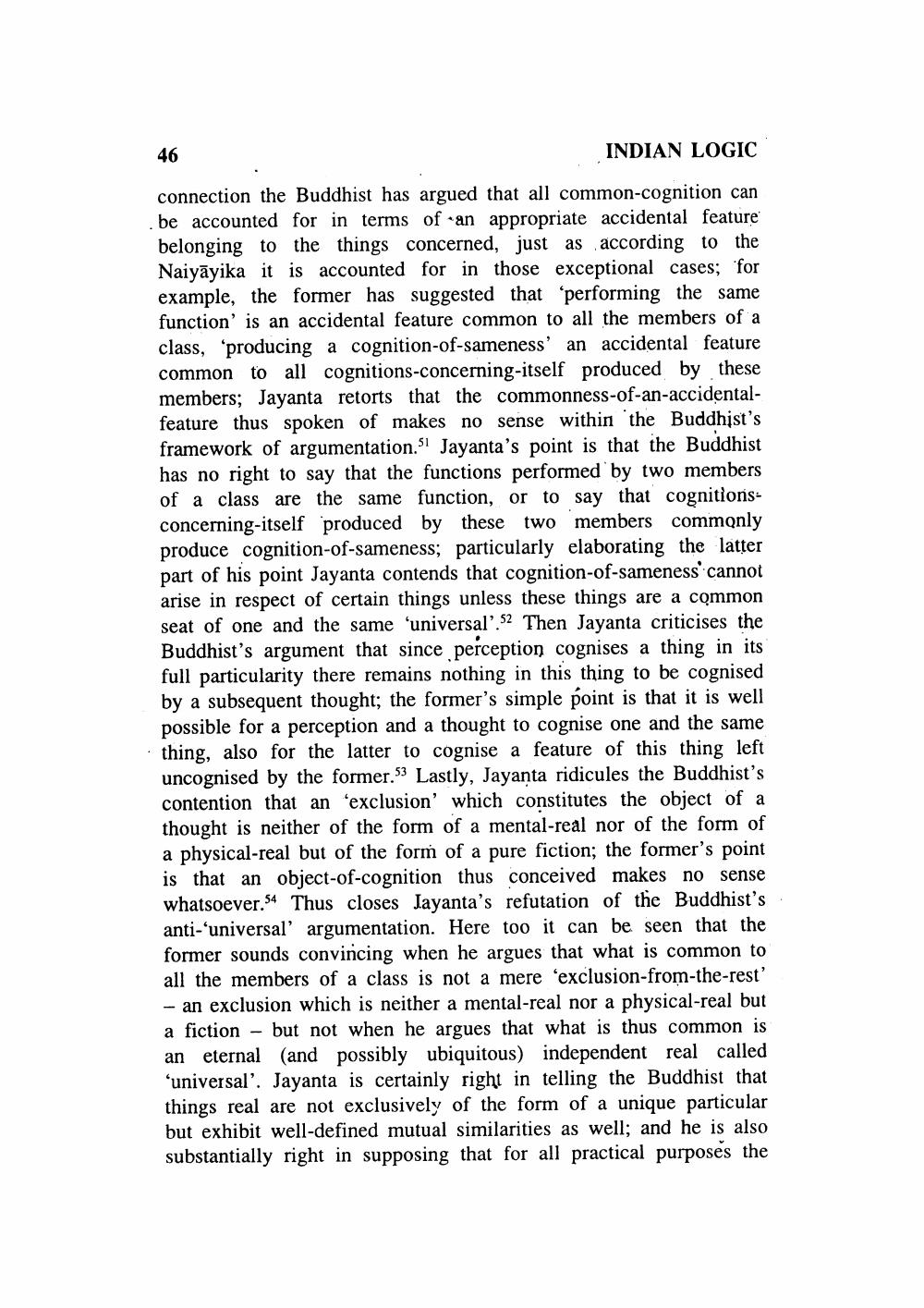________________
46
INDIAN LOGIC
connection the Buddhist has argued that all common-cognition can be accounted for in terms of an appropriate accidental feature belonging to the things concerned, just as according to the Naiyāyika it is accounted for in those exceptional cases; 'for example, the former has suggested that 'performing the same function' is an accidental feature common to all the members of a class, 'producing a cognition-of-sameness' an accidental feature common to all cognitions-concerning-itself produced by these members; Jayanta retorts that the commonness-of-an-accidentalfeature thus spoken of makes no sense within the Buddhist's framework of argumentation. Si Jayanta's point is that the Buddhist has no right to say that the functions performed by two members of a class are the same function, or to say that cognitionsconcerning-itself produced by these two members commonly produce cognition-of-sameness; particularly elaborating the latter part of his point Jayanta contends that cognition-of-sameness cannot arise in respect of certain things unless these things are a common seat of one and the same 'universal'.52 Then Jayanta criticises the Buddhist's argument that since perception cognises a thing in its full particularity there remains nothing in this thing to be cognised by a subsequent thought; the former's simple point is that it is well possible for a perception and a thought to cognise one and the same thing, also for the latter to cognise a feature of this thing left uncognised by the former.53 Lastly, Jayanta ridicules the Buddhist's contention that an 'exclusion' which constitutes the object of a thought is neither of the form of a mental-real nor of the form of a physical-real but of the form of a pure fiction; the former's point is that an object-of-cognition thus conceived makes no sense whatsoever.54 Thus closes Jayanta's refutation of the Buddhist's anti-universal' argumentation. Here too it can be seen that the former sounds convincing when he argues that what is common to all the members of a class is not a mere 'exclusion-from-the-rest' - an exclusion which is neither a mental-real nor a physical-real but a fiction - but not when he argues that what is thus common is an eternal (and possibly ubiquitous) independent real called ‘universal'. Jayanta is certainly right in telling the Buddhist that things real are not exclusively of the form of a unique particular but exhibit well-defined mutual similarities as well; and he is also substantially right in supposing that for all practical purposes the




